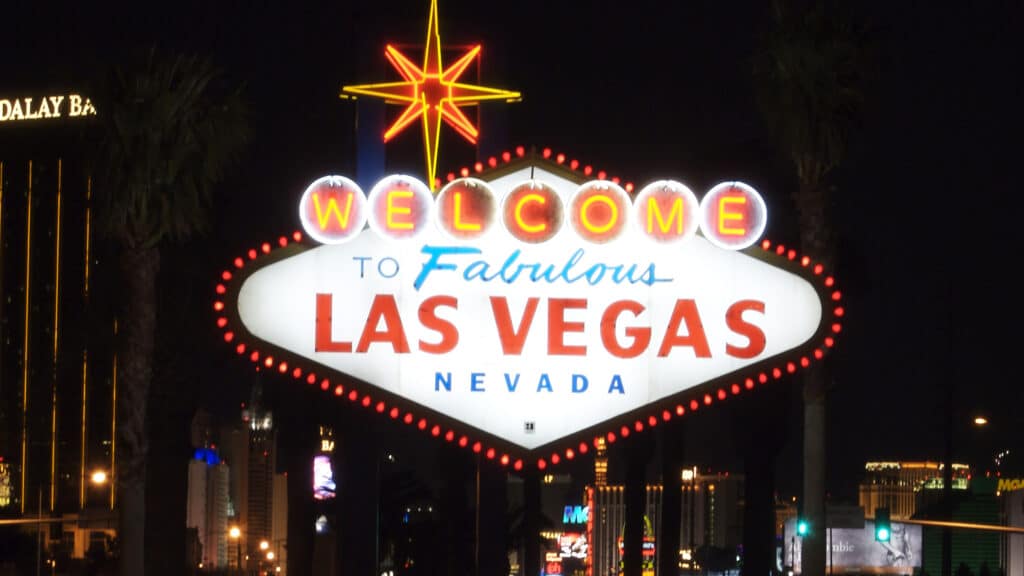Gambling is a popular pastime enjoyed by millions of people worldwide. However, the rules that govern this industry vary significantly from country to country. Some laws are deeply rooted in cultural beliefs, while others are shaped by the economic benefits that gambling can bring. In this article, we explore 10 curious and sometimes surprising gambling laws and regulations that shape the landscape of online and land-based gambling worldwide. Whether you're a new player or a seasoned veteran, this journey through global gambling laws will provide both fun facts and useful insights.
1. The Strangely Strict Gambling Laws in Japan
Japan is known for its intricate and often puzzling gambling regulations. While gambling is largely illegal in the country, certain exceptions exist that allow players to engage in specific forms of gambling. For example, pachinko, a type of mechanical game that resembles a pinball machine, is one of the most popular gambling activities in Japan. Despite technically being a game of skill, pachinko operates under legal loopholes that allow players to gamble freely.
Interestingly, Japan does not officially allow cash payouts for gambling winnings. Instead, players are paid in tokens or prizes, which they can exchange for cash through third-party businesses located near the pachinko parlors. This workaround keeps the gambling industry operating under the radar of the law.
Fun Fact:
Despite the strict regulations, Japan has some of the most advanced gambling technology in the world, with state-of-the-art pachinko machines featuring digital screens, sound effects, and interactive gameplay.
2. The "Casino Tax" in Germany
In Germany, casino winnings are subject to a special tax known as the "casino tax." This tax applies to all gambling winnings above a certain threshold, which can vary depending on the region. In most cases, the tax rate for winnings from gambling ranges from 5% to 10%, which can take a significant bite out of a player’s earnings.
However, the German gambling tax system is not entirely punitive. In fact, players can deduct losses from their taxable winnings, which can result in a more favorable tax situation. This unique approach makes Germany one of the few countries that provide a balanced perspective on gambling taxation.
Useful Tip for Advanced Players:
If you're an avid gambler in Germany, it's wise to keep a detailed record of your losses and wins to ensure you're taking advantage of tax deductions. Consulting a tax professional who specializes in gambling taxation can also help you navigate this complex system.
3. Gambling in the Middle East: A Cultural Ban
In many Middle Eastern countries, gambling is strictly prohibited due to religious and cultural reasons. In countries like Saudi Arabia, gambling is completely illegal, with harsh penalties for those caught participating in any form of gambling. These strict laws stem from Islamic teachings, which prohibit gambling due to its association with vice and moral corruption.
However, despite the ban, there are still some forms of gambling-like activities in the region. For example, lotteries and raffles are sometimes organized as part of charitable causes. But even then, the activities are highly regulated and subject to governmental scrutiny.
Fun Fact:
Although gambling is banned in Saudi Arabia and many other Middle Eastern countries, Dubai has created legal loopholes for tourists, such as hosting international poker tournaments and having regulated lottery systems aimed at attracting tourists.
4. India’s Complex Gambling Laws
India is home to one of the most complicated gambling laws in the world. Gambling laws vary not only between different states but also depending on the type of gambling. For instance, horse racing is legal in India and operates in a regulated market, but casino gambling is mostly banned, with only a few states like Goa and Sikkim permitting casinos under strict supervision.
Online gambling in India remains in a gray area. While many forms of online gambling are prohibited under national laws, several states have their own laws that either allow or regulate online betting. The growing popularity of online gambling has sparked debates about whether the laws should be updated to accommodate this new industry.
Useful Tip for New Players:
In India, it is essential to understand which state you are in before engaging in any gambling activity. While states like Goa and Sikkim offer legalized gambling options, other regions may have stricter regulations that prohibit various forms of gambling.
5. The Legal Gambling Age Varies Across the US
In the United States, the legal age for gambling varies depending on the type of gambling and the state. For instance, in Nevada, one of the most famous gambling hubs, the legal age for casino gambling is 21. However, in states like Michigan and Indiana, the legal age for gambling is 18 for both land-based and online casinos.
This discrepancy creates an interesting scenario where players traveling between states may encounter varying legal standards for gambling. The wide range of gambling laws and age restrictions can often confuse new players who are unfamiliar with the laws of specific states.
Fun Fact:
Las Vegas, the gambling capital of the US, was once a town where the legal gambling age was just 18, but that was changed to 21 in 1972 as part of a broader attempt to curb the influence of organized crime.
6. Online Gambling Regulations in the UK
The United Kingdom has one of the most comprehensive and transparent gambling regulatory frameworks in the world. The UK Gambling Commission is responsible for overseeing all forms of gambling, including online casinos, sportsbooks, and lotteries. One of the most notable aspects of UK gambling law is the requirement for operators to hold a license from the Gambling Commission, ensuring that they adhere to strict standards of fairness and transparency.
Additionally, the UK has a strong emphasis on promoting responsible gambling. Operators are legally obligated to provide tools for self-exclusion and to prevent underage gambling, ensuring that players can engage in a safe and regulated environment.
Useful Tip for Advanced Players:
If you are a player from the UK, always make sure that the online casinos you play at are licensed by the UK Gambling Commission. This provides a guarantee that the operator follows fair practices and adheres to responsible gambling guidelines.
7. Australia's Online Gambling Laws: A Balancing Act
Australia's online gambling laws aim to strike a balance between ensuring the safety of players and fostering a competitive market for operators. While online gambling is legal in Australia, it is regulated by the Interactive Gambling Act of 2001, which prohibits operators from offering real-money online gambling to Australian residents unless they are licensed by the government.
One interesting aspect of Australian gambling laws is the strict regulation of online sports betting. Sports betting operators are required to offer self-exclusion tools and provide detailed reporting on problem gambling rates. Despite the regulations, Australia remains one of the top countries for online gambling, with millions of players engaging in various activities, from poker to sports betting.
Fun Fact:
Australia's National Gambling Helpline offers a 24/7 service for individuals who feel they may have a gambling problem, showing the country's commitment to responsible gambling practices.
8. Gambling Laws in Canada: A Provincial Matter
In Canada, gambling laws are largely a provincial matter, meaning each province has its own set of regulations for gambling activities. While gambling is legal in most provinces, including Ontario and British Columbia, the specific rules regarding online gambling vary. In some provinces, online gambling is operated by the government, while in others, private operators are allowed to offer services, provided they meet the necessary regulations.
Canada also has a unique regulation when it comes to sports betting. Until 2021, it was illegal to bet on a single sporting event, but the country recently amended its laws, allowing single-event sports betting to be legalized in a bid to combat illegal offshore gambling.
Useful Tip for Advanced Players:
If you're an online gambling enthusiast in Canada, make sure to check if your province allows online gambling, and be aware of whether the games are offered by a provincial operator or a private entity.
9. South Korea’s Regulated Online Gambling Market
South Korea is another country with strict gambling laws, but it allows limited forms of regulated online gambling. While most types of gambling are illegal, online betting on horse racing and sports is allowed, and the government oversees these activities through a state-run platform.
Interestingly, the government has also cracked down on illegal gambling activities, especially online gambling sites that are not licensed by the state. Players caught participating in illegal gambling activities face heavy fines and penalties, making it important for South Korean gamblers to stick to regulated platforms.
Fun Fact:
South Korea's National Gambling Control Commission is so serious about curbing illegal gambling that it has created a task force to track and prosecute unlicensed gambling websites. This level of commitment to regulation is a hallmark of South Korean gambling laws.
10. Unique Gambling Laws in Sweden
Sweden has a unique approach to gambling regulation that combines government control with a strong focus on consumer protection. The Swedish Gambling Authority (Spelinspektionen) regulates all forms of gambling in the country, including online casinos and sportsbooks. In 2019, Sweden implemented a new law that allows only government-approved operators to offer online gambling services to Swedish residents.
The law also places a significant emphasis on ensuring that gambling is conducted responsibly, with strict regulations on advertising and a requirement for operators to offer self-exclusion and other tools to help players avoid addiction.
Useful Tip for Advanced Players:
If you are a player from Sweden, be sure to check if your online casino is licensed by Spelinspektionen to ensure that you are playing on a legal and safe platform.
Conclusion
As we’ve seen, gambling laws and regulations around the world are incredibly diverse, often shaped by cultural values, economic goals, and social considerations. While some countries embrace gambling with open arms, others impose strict controls, even banning it entirely. For players, understanding the rules and regulations in their home country—or when traveling abroad—is crucial for enjoying a safe and responsible gambling experience.
Whether you’re a casual player or an experienced gambler, staying informed about the gambling laws in your region can help you avoid pitfalls and maximize your enjoyment of the gaming world.



